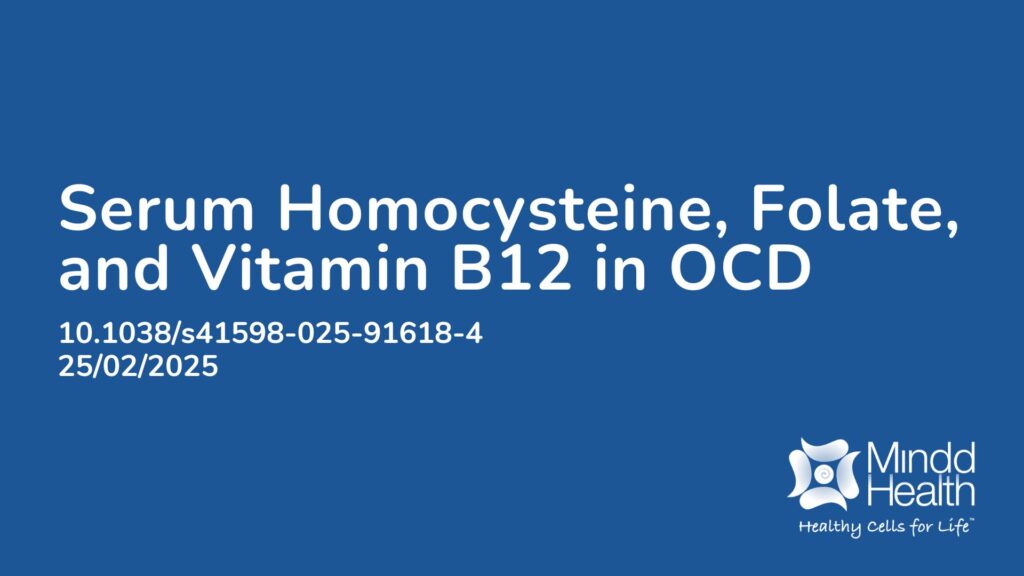Summary:
Obsessive-compulsive disorder (OCD) is a mental health condition where people have repeated unwanted thoughts and feel compelled to perform certain behaviours. It affects about 1-3% of people worldwide and is often linked to problems with memory, attention, and executive function. Certain nutrients such as folate and vitamin B12 support cognitive processes, however high levels of a substance called homocysteine can interfere with the benefits of these nutrients and may harm brain function. Some studies have suggested that people with OCD may have unusual levels of homocysteine, folate, and vitamin B12, but how this affects cognition is not clear. This study compared 50 people with OCD who are unmedicated to healthy controls. The researchers tested cognition and measured blood levels of homocysteine, folate, and vitamin B12. People with OCD had more trouble with memory and attention, higher homocysteine, and lower folate. The analysis showed that higher homocysteine was linked to worse OCD symptoms and poorer verbal learning, while folate seemed to protect cognitive abilities. These results suggest that changes in these metabolic pathways may contribute to the cognitive problems seen in OCD. Keeping homocysteine levels lower and folate levels adequate may be protective for brain function in people with OCD.
Abstract:
The study aimed to investigate the correlation between Homocysteine (HCY), folate and vitamin B12 (VB12) levels and cognitive function in patients with drug-naive obsessive-compulsive disorder (OCD).Fifty patients with drug-naive OCD and 50 matched healthy controls recruited were enrolled. Subjects were cognitively assessed using The MATRICS Consensus Cognitive Battery (MCCB) scales. Serum HCY, floate, and vitamin B12 levels were collected.There was impairment in memory, attention in drug-naive OCD patients compared to the control group (P < 0.05). There were significant differences in HCY and folate levels compared to the control group (P < 0.05). SPSS mediated effects model 4 analyses showed that HCY levels mediated the relationship between Y-BCOS scores and verbal learning ability (median effect value: -0.43, 95% CI [-0.58 ~ -0.28]). Folate levels also mediated the relationship between Y-BOCS scores and verbal learning ability (median effect value: -0.11,95% CI: [-0.21 ~-0.03]). HCY levels were positively correlated with symptom severity and verbal learning ability, speed of information processing, and impaired emotion management in patients with drug-naive OCD, and folate levels may be protective against cognitive changes in patients with drug-naive OCD. OCD symptom severity together with HCY and folate levels affect cognitive function.
Article Publication Date: 25/02/2025
DOI: 10.1038/s41598-025-91618-4



